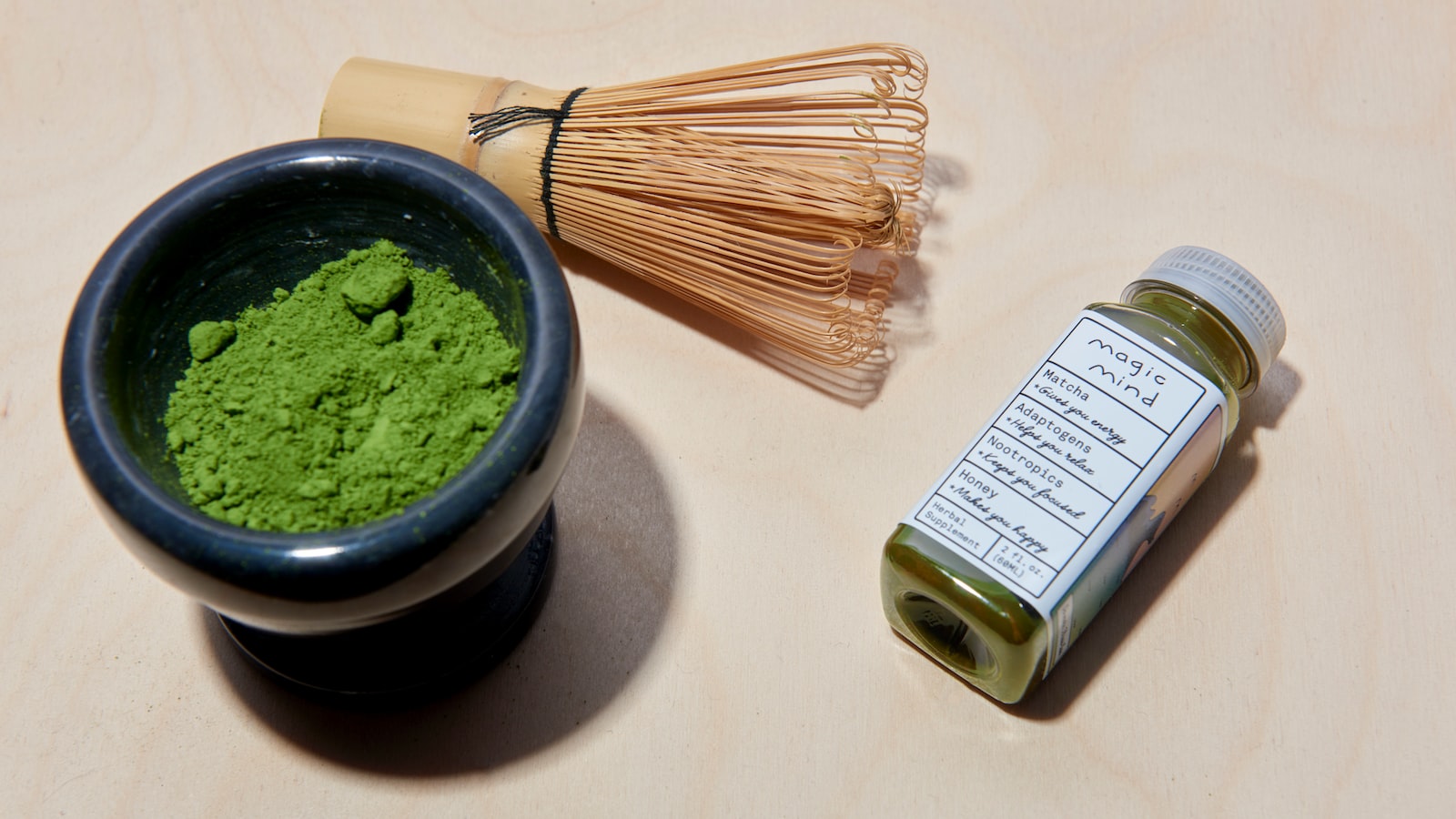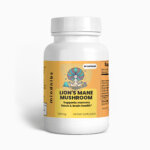
“The Iron Factor: Understanding the Role of Supplements in Iron Deficiency”
Iron deficiency is one of the most prevalent health conditions worldwide. It can lead to anemia, fatigue, and even cognitive impairment if not treated properly. Fortunately, there are effective ways to address iron deficiency, including iron-rich diets and supplements. However, the increasing availability of different types of supplements in the market can be overwhelming, making it difficult to choose the right one. In this article, we explore the role of supplements in managing iron deficiency, their benefits, and risks, to help you make an informed decision. We aim to empower you with knowledge so that you can take control of your health and prevent the negative consequences of iron deficiency.
1. Introduction: The Importance of Iron for Optimal Health
Iron is a crucial element for the human body. It plays a vital role in various physiological processes, like oxygen transportation, cell growth and development, immune system functioning, and many more. According to WHO, iron deficiency is the most common nutritional disorder worldwide. It can severely impact the physical and mental wellbeing of an individual and, if not detected on time, can lead to irreversible damages.
Research suggests that iron deficiency can cause anemia, which results in symptoms like low energy levels, pale skin, shortness of breath, and weakness. Anemia can also negatively impact brain functions and cognitive abilities such as higher-level thinking, language, and memory. Iron deficiency can also render children more vulnerable to infections and illnesses. Hence, it’s necessary to maintain optimal iron levels to ensure physical and mental well-being.
Iron is widely found in foods such as liver, beef, chicken, fish, eggs, whole grains, nuts, beans, and dark green vegetables. However, the absorption rate of iron-rich foods is influenced by factors such as age, sex, and certain medical conditions. If an individual’s body does not get the required amount of iron through a balanced diet, iron supplements can be taken in consultation with a healthcare professional. To sum up, consuming a balanced diet with adequate iron intake is crucial for optimal health.
2. Understanding Iron Deficiency: Causes and Symptoms
Iron deficiency is a common nutritional deficiency and is caused by a lack of iron in the body. Iron is essential for the production of red blood cells that carry oxygen to various parts of the body. When the body doesn’t have enough iron, it can’t produce enough red blood cells, leading to anemia. A few common causes of iron deficiency include:
- Inadequate dietary intake of iron
- Blood loss due to menstruation or injury
- Malabsorption disorders like celiac disease, Crohn’s disease, or surgery to remove a part of the stomach or small intestine.
The symptoms of iron deficiency can vary from person to person and may develop slowly over time. Common symptoms include:
- Fatigue and weakness
- Pale skin
- Shortness of breath
- Dizziness
- Cold hands and feet
It is essential to identify and treat iron deficiency early as it can lead to serious complications like heart problems, developmental delays in children, and impaired immune system function. It is advisable to talk to your healthcare provider if you experience any symptoms of iron deficiency. They may suggest some iron-rich foods or prescribe iron supplements if necessary. It is also a good idea to eat a balanced diet that includes foods rich in iron like red meat, poultry, seafood, beans, and green vegetables to prevent iron deficiency.
Understanding the causes and symptoms of iron deficiency can help you take proactive measures to prevent it and manage it better. If you experience any symptoms of iron deficiency, it is essential to talk to your healthcare provider for timely diagnosis and treatment. Remember, iron deficiency is preventable, and with the right steps, you can maintain healthy levels of iron in your body.
3. The Role of Supplements in Combating Iron Deficiency
Iron deficiency is a major health concern for many people around the world. It can lead to several adverse health outcomes, such as anemia, fatigue, and impaired cognitive function. While iron-rich foods are the best source of iron, sometimes it is not enough. In these cases, iron supplements can be an effective solution.
Supplements can help to increase iron levels in the body when dietary intake is not sufficient, and they are particularly useful for individuals who follow a vegetarian or vegan diet and may struggle to get iron from food. Supplements also play a crucial role in pregnant women and children who are at higher risk of iron deficiency. Ferrous sulfate, ferrous fumarate, and ferrous gluconate are the most common forms of iron supplements available, and they are all effective in treating iron deficiency.
It is important to note that iron supplements should be taken under the guidance of a healthcare professional. Overconsumption of iron can lead to toxicity, and symptoms of iron toxicity can include nausea, vomiting, and even death in severe cases. Therefore, it is essential to follow the recommended dosage and not exceed it. Additionally, supplements should not replace iron-rich foods but should be used to complement a well-balanced diet. With the right guidance, iron supplements can be an essential tool in combating iron deficiency.
4. Choosing the Right Iron Supplement for Your Needs
Iron is an important mineral that your body needs to function properly. An iron deficiency can cause fatigue, weakness, and even anemia. If you think you might have an iron deficiency, it’s important to talk to your doctor before starting any iron supplementation. Once you’ve talked to your doctor, here are some things to consider when choosing an iron supplement:
- Form: Iron supplements come in different forms, including capsules, tablets, liquids, and gummies. Capsules and tablets are the most common, but liquids and gummies can be easier to swallow and might be a good option if you have trouble with pills.
- Dosage: The amount of iron you need will depend on your individual needs and the severity of your deficiency. Your doctor will be able to tell you how much you should be taking each day.
- Side effects: Iron supplements can cause side effects like constipation, nausea, and stomach cramps. If you experience any of these side effects, talk to your doctor about adjusting your dosage or switching to a different form of iron supplement.
It’s also important to choose an iron supplement that is easy to absorb. Look for a supplement that contains either ferrous sulfate or ferrous gluconate, which are highly absorbable forms of iron. Additionally, taking your iron supplement with vitamin C can help your body absorb the iron more effectively.
Remember, it’s always best to talk to your doctor before starting any iron supplementation. They can help you determine if you have an iron deficiency and recommend the best course of treatment for your individual needs. With the right iron supplement and advice from your doctor, you can improve your energy levels and overall health.
5. Tips for Maximizing Iron Absorption and Minimizing Side Effects
Iron is an essential mineral that is required for a range of processes in the human body. However, not all iron is created equal, and the body can struggle to absorb it efficiently. If you are looking to maximize your iron absorption and minimize any potential side effects, here are some tips that may help.
1. Pair iron-rich foods with vitamin C: Vitamin C is known to enhance the absorption of iron, so try to pair iron-rich foods with those that are packed with vitamin C. Some examples include citrus fruits, strawberries, and bell peppers. You could also try squeezing lemon juice over your meals or enjoying a side of salsa to give your iron absorption a boost.
2. Avoid drinking tea or coffee with meals: The tannins in tea and coffee can bind with iron, making it more difficult for your body to absorb. To maximize your iron absorption, try to limit your intake of tea and coffee around meal times. If you really can’t resist a hot drink with your meal, consider swapping your regular tea or coffee for an herbal tea.
3. Consider taking an iron supplement: If you struggle to get enough iron from your diet, or you have an iron deficiency, you may benefit from taking an iron supplement. However, it’s important to choose a supplement that is right for you and to take it as directed. Some people may experience side effects from iron supplements, such as constipation or upset stomach, so always start with a lower dose and gradually build up if needed. Remember to talk to your doctor or healthcare provider before taking any supplements.
By following these tips, you may be able to increase your iron absorption while minimizing any potential negative side effects. Remember to be patient and consistent, as it can take several weeks to see changes in your iron levels. If you continue to struggle with low iron levels or side effects from supplements, always consult your doctor or healthcare provider for personalized advice.
6. Common Myths and Misconceptions about Iron Supplementation
Iron supplementation is a common practice in many parts of the world. However, there are a lot of myths and misconceptions about iron supplementation that can make it difficult for people to understand the benefits and risks of taking iron supplements. Here are some of the most common myths and misconceptions:
- Myth: “More iron is always better.” This is false. Too much iron can actually be toxic and lead to serious health problems. It’s important to follow recommended dosage guidelines and not exceed them.
- Misconception: “Iron supplements will cure my fatigue.” While fatigue can be a symptom of iron deficiency, it can also be caused by other factors. Iron supplementation may help with fatigue caused by iron deficiency, but if the cause of fatigue is something else, iron supplements may not have much effect.
- Myth: “Iron supplements cause constipation.” This is not always true. While some people may experience constipation when taking iron supplements, others may not experience any gastrointestinal side effects. Drinking plenty of fluids and eating high-fiber foods can also help prevent constipation.
It’s important to understand the facts about iron supplementation and not be swayed by myths and misconceptions. If you are considering taking iron supplements, talk to your doctor about the risks and benefits. They can help you determine if iron supplementation is necessary and the best dosage for your individual needs.
7. Conclusion: Why Supplementing with Iron is Essential for Your Health and Well-Being
Iron is an essential mineral that plays a crucial role in our body. It is required for the production of hemoglobin, which carries oxygen from lungs to other parts of our body. Iron also helps in maintaining healthy muscles, brain function, and immune system. But, unfortunately, iron deficiency is a common problem worldwide, affecting millions of people. That’s why supplementing with iron is essential for your health and well-being.
Iron deficiency can lead to anemia, fatigue, weakness, and impaired immune function. It can also cause shortness of breath, dizziness, and headaches. Therefore, it is crucial to meet your daily iron requirement through food or supplements. For most people, the daily requirement of iron is around 18mg for adults and 27mg for pregnant women. But, some people may require a higher dose of iron due to medical conditions or excessive blood loss.
Supplementing with iron can help prevent or treat iron deficiency. Iron supplements are available in various forms, such as tablets, capsules, and liquids. You can choose the one that suits you the most. However, before taking any iron supplements, it is essential to consult with your healthcare provider. They can guide you on the right dosage and help you avoid any potential side effects. With the right supplementation of iron, you can improve your health, boost your energy, and enhance your well-being.
In conclusion, Iron is a vital mineral that plays a key role in maintaining our health and well-being. Iron deficiency can lead to a range of long-term health issues and can be difficult to manage without proper supplementation. When considering Iron supplements, talk to your doctor to ensure that you get the right amount and type of Iron for your individual needs. With proper management and supplementation, anyone can stay healthy and avoid the complications associated with Iron deficiency.

























